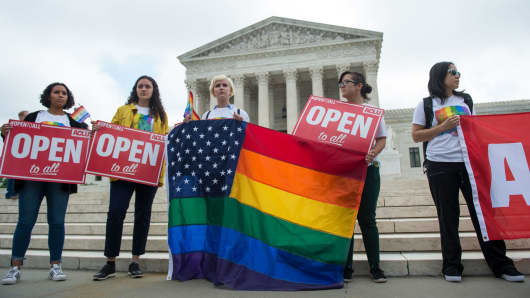It tells us very little about how similar cases should be resolved in the future. Instead of providing a bright-line rule, the Court made this particular case go away and urged citizens, courts, and officials going forward to resolve such cases with, in Justice Kennedy's words, 'tolerance, without undue respect to sincere religious beliefs, and without subjecting gay persons to indignities when they seek goods and services in an open market."
The Court affirmed that religious and other conscientious beliefs regarding same-sex marriage are constitutionally protected, even when unpopular. The justices recognized that deep and sincere disagreements persist about these matters and that both our First Amendment and the needs of civil society require balance, understanding, and humility.
Although the decision is not definitive, and the justices seemed deliberately to avoid the difficult but important constitutional questions that most Court-watchers thought were at stake, the ruling can be seen as a prudent way for the Court to invite civil dialogue and conversation, rather than more rancor and litigation, about striking the right balance in our pluralistic society.
Given that Justice Kennedy's record on the freedom of speech has been consistent and probably the most libertarian on the Court for 30 years, it might be surprising to some that he didn't affirm Mr. Phillips's free-speech right to refuse to engage in expressing a message, through his creative activity, with which he disagrees.
Today's opinion suggests that, notwithstanding Justice Kennedy's strong free-speech views, there was a broad consensus on the Court that it would be best not to definitively resolve, and constitutionalize, this kind of case.
The Court's reliance on the religious hostility evidenced by some of the Colorado regulators' statements could tell us something about how it will regard President Trump's pre-election tweets and statements in the pending Travel Ban case.
In that case, those challenging the administration's orders have pointed to these tweets and statements as evidence that the policy is, like the Colorado officials' decision regarding Mr. Phillips, constitutionally tainted by religious animosity and bias.
Commentary by Richard W. Garnett, a professor at the Notre Dame Law School and director of its Program on Church, State & Society. He specializes in the Supreme Court and freedoms of speech and religion.
For more insight from CNBC contributors, follow
@CNBCopinion
on Twitter.


